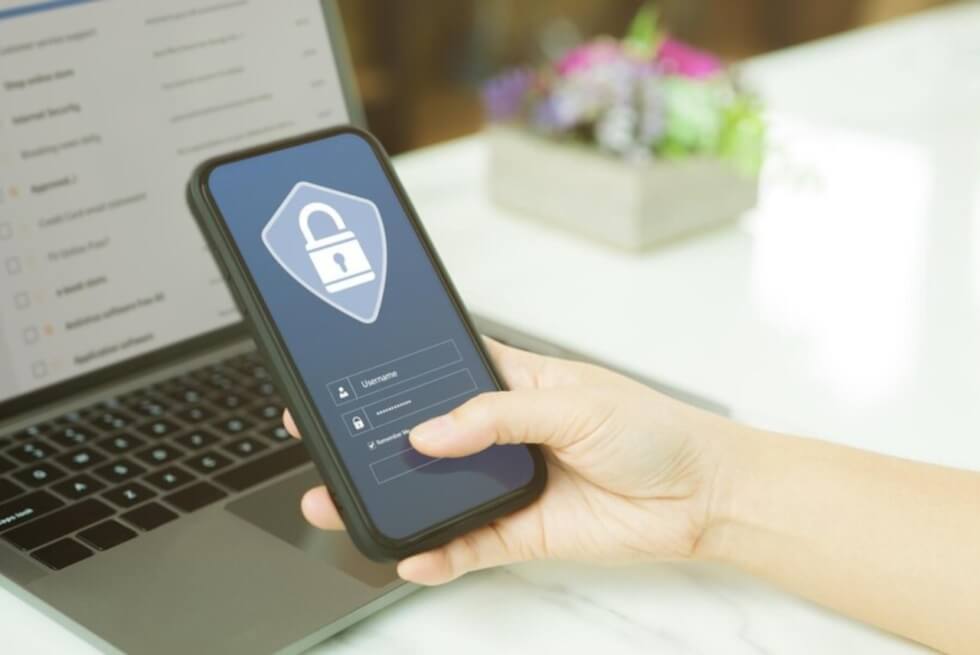With the rise of mobile banking and online borrowing, smartphones have become essential for managing finances. However, this convenience comes with the increased risk of cyberattacks and data breaches.
Securing your phone is crucial, especially when borrowing money online. This guide will provide best practices to help you protect your financial data and ensure a safe borrowing experience.
Use Strong Passwords and Biometric Authentication
One simplest yet most effective way to secure your phone is by using strong passwords and enabling biometric authentication, such as fingerprint or facial recognition. A strong password is your first line of defense against unauthorized access. Avoid using easily guessable passwords like “123456” or “password.”
Instead, opt for complex passwords that combine upper- and lowercase letters, numbers, and special characters. Consider using a password manager to store and generate unique passwords for different apps.
Biometric authentication adds an extra layer of security by requiring your unique physical traits to unlock your phone. This makes it difficult for anyone else to access your device. This combination ensures that even if someone tries to unlock your phone, they won’t succeed without your identification features.
Enable Two-Factor Authentication (2FA)
Two-factor authentication (2FA) adds an extra layer of security to your online borrowing apps and accounts by requiring a second form of verification, usually a code sent to your phone or email, and your password. Even if hackers can obtain your password, they need the second factor to access your account.
Most banking and financial apps offer 2FA as a security feature. Enable it wherever possible to reduce the risk of unauthorized access to your sensitive financial information.
By using 2FA, you significantly increase the security of your accounts, as it requires both something you know (your password) and something you have (your phone). This added barrier makes it much harder for cybercriminals to access your information.
Keep Your Phone’s Operating System and Apps Updated
Software updates include critical security patches that protect your phone from vulnerabilities. Hackers often exploit outdated software to gain unauthorized access to devices. Regularly updating your phone’s operating system and the apps you use for online borrowing is crucial.
Most phones allow you to set updates to occur automatically, ensuring you always have the latest security patches installed. Staying updated is a simple yet effective way to safeguard your financial data.
Developers continuously enhance their security measures, and by keeping your system updated, you benefit from the latest protections against emerging threats. If your device does not automatically notify you, always check for updates.
Download Apps Only from Trusted Sources
The apps you download on your phone can be a significant security risk, especially if they come from untrusted sources. Stick to downloading apps from official app stores like Google Play Store or Apple App Store, where apps are vetted for security.
Avoid downloading apps from third-party websites, as they may contain malware that can compromise your financial data. Before downloading any app, especially those related to finance or borrowing, check user reviews and ratings to ensure it is reputable and secure.
Also, review the app permissions and ensure they are necessary for its functionality; some malicious apps request access to more information than they need, posing a risk to your security. By being selective about the apps you install, you minimize the risk of malicious software infiltrating your device.
Be Cautious with Public Wi-Fi Networks
Public Wi-Fi networks, such as those in cafes, airports, or shopping centers, are often unsecured, making them a prime target for hackers looking to intercept data. Avoid using public Wi-Fi networks when borrowing online or accessing sensitive financial information.
If you must use public Wi-Fi, consider using a Virtual Private Network (VPN) to encrypt your internet connection and protect your data from potential eavesdropping. A VPN creates a secure tunnel for your data, making it much more difficult for hackers to access your information.
It’s also wise to turn off your phone’s automatic Wi-Fi connection feature to prevent it from connecting to public networks without your knowledge. The best practice is to rely on your cellular data for sensitive transactions when you are on the go.
Use Encryption to Protect Your Data
Encryption is a process that converts your data into a code to prevent unauthorized access. Most modern smartphones come with built-in encryption features that enable you to protect your data. When your phone is encrypted, even if it falls into the wrong hands, the data on it will be unreadable without the correct password or decryption key.
To enable encryption, go to your phone’s security settings and look for encryption options. This step is crucial if you store sensitive financial information or documents on your device.
Encrypting your data ensures that your information remains secure even if your phone is lost or stolen, providing peace of mind that your personal and financial data is not easily accessible to others.
Choose a Reputable Lender
Choosing a reputable lender is crucial when borrowing online. A reputable lender like MoneyKey will have strong security protocols to protect your personal and financial information. They will use encrypted connections to secure your data and have transparent privacy policies that outline how your information is used and protected.
Reputable lenders also provide clear contact information and customer support, allowing you to verify their legitimacy. When selecting an online lender, do thorough research, read reviews, and ensure they have a good track record of customer satisfaction and security.
Opting for a reputable lender protects your financial data and ensures you receive fair and transparent loan terms, minimizing the risk of falling victim to scams.
Be Aware of Phishing Scams
Phishing scams are fraudulent attempts to obtain sensitive information by disguising it as a trustworthy entity. They often take the form of emails, text messages, or fake websites designed to trick you into providing personal information, such as login credentials or credit card numbers. Always be skeptical of unsolicited communications requesting sensitive information.
When borrowing online, ensure you are on the legitimate website or app of your lender. Look for signs of phishing, such as misspelled URLs or requests for unnecessary personal information. If you receive suspicious emails or messages, do not click on any links or provide any information.
Be proactive by educating yourself on common phishing tactics and always verify the sender’s identity before responding to such requests.
Install a Reliable Mobile Security App
Just as you would install antivirus software on your computer, having a reliable security app on your phone is essential. Mobile security apps offer virus scanning, malware protection, and anti-theft measures.
Some advanced security apps offer features that remotely lock or wipe your phone if it is lost or stolen, ensuring your financial data remains safe. Research and choose a reputable security app that provides comprehensive protection for your device.
Some security apps provide real-time threat detection and alerts, informing you of any potential security risks to your phone. To protect against the latest threats, regularly update your security app.
Regularly Monitor Your Accounts
Even with all the security measures in place, regularly monitoring your financial accounts for any unusual activity is essential. Set up transaction alerts to immediately notify you of any unauthorized actions.
By monitoring your account activity, you can quickly detect and respond to suspicious behavior, minimizing potential damage. If you notice anything unusual, immediately contact your bank or lender to secure your accounts and prevent further unauthorized access.
Regular monitoring also helps you stay on top of your financial situation, ensuring that you are aware of all transactions and can promptly address any discrepancies.







